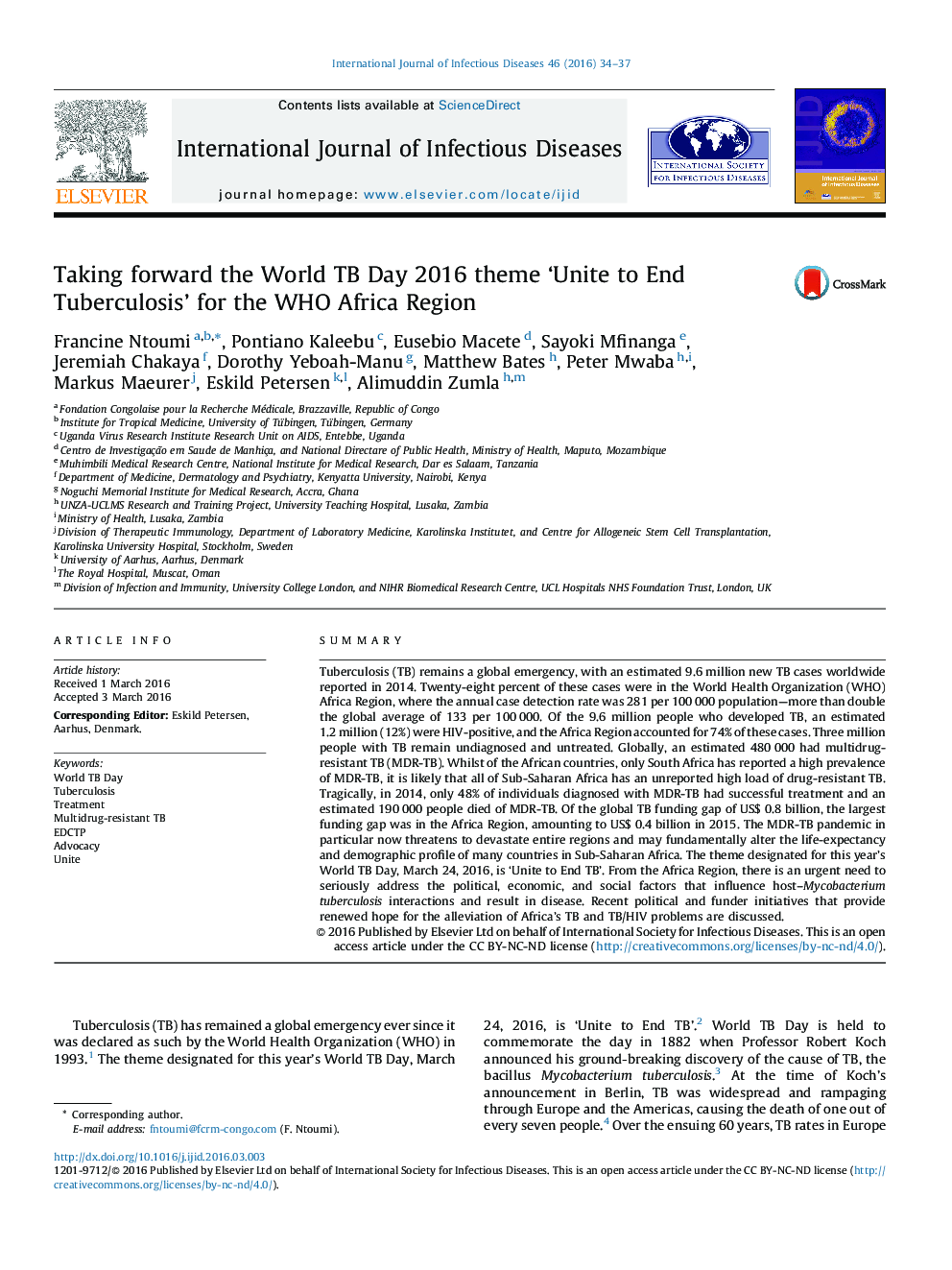| Article ID | Journal | Published Year | Pages | File Type |
|---|---|---|---|---|
| 3361650 | International Journal of Infectious Diseases | 2016 | 4 Pages |
•Tuberculosis (TB) has remained a global emergency ever since it was declared as such by the World Health Organization (WHO) in 1993.•Of the 9.6 million people who developed TB in 2014, 28% were in the WHO Africa Region, where the case rate was 281 per 100 000 population.•An estimated 1.2 million (12%) TB cases were HIV-positive and the Africa Region accounted for 74% of these cases.•The global spread of multidrug-resistant TB (MDR-TB) is now a major public health challenge.•Scientific, political, and funder communities seriously need to ‘Unite to End TB’, the theme of the 2016 World TB Day.•TB control programs in Africa can only succeed if mechanisms for close engagement of developing country scientists, healthcare workers, patient groups, governments, and policy-makers are ensured by funding and donor agencies.•Several funder, political, and community initiatives provide hope for achieving the goals of the WHO post-2015 TB strategy.•TB activities and funder investments in Africa need to be aligned in parallel with international efforts at improving social and living conditions and with the ‘one health’ initiative.
SummaryTuberculosis (TB) remains a global emergency, with an estimated 9.6 million new TB cases worldwide reported in 2014. Twenty-eight percent of these cases were in the World Health Organization (WHO) Africa Region, where the annual case detection rate was 281 per 100 000 population—more than double the global average of 133 per 100 000. Of the 9.6 million people who developed TB, an estimated 1.2 million (12%) were HIV-positive, and the Africa Region accounted for 74% of these cases. Three million people with TB remain undiagnosed and untreated. Globally, an estimated 480 000 had multidrug-resistant TB (MDR-TB). Whilst of the African countries, only South Africa has reported a high prevalence of MDR-TB, it is likely that all of Sub-Saharan Africa has an unreported high load of drug-resistant TB. Tragically, in 2014, only 48% of individuals diagnosed with MDR-TB had successful treatment and an estimated 190 000 people died of MDR-TB. Of the global TB funding gap of US$ 0.8 billion, the largest funding gap was in the Africa Region, amounting to US$ 0.4 billion in 2015. The MDR-TB pandemic in particular now threatens to devastate entire regions and may fundamentally alter the life-expectancy and demographic profile of many countries in Sub-Saharan Africa. The theme designated for this year's World TB Day, March 24, 2016, is ‘Unite to End TB’. From the Africa Region, there is an urgent need to seriously address the political, economic, and social factors that influence host–Mycobacterium tuberculosis interactions and result in disease. Recent political and funder initiatives that provide renewed hope for the alleviation of Africa's TB and TB/HIV problems are discussed.
